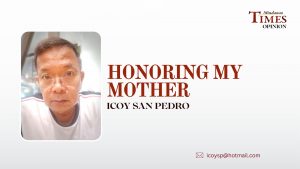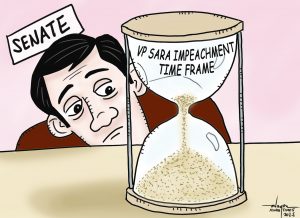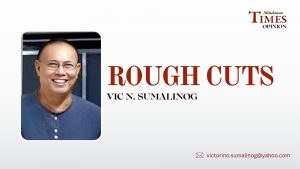For not choosing who to infect between rich and poor, between rulers and ruled, and between the healthy and ill, Covid-19 may be considered an equalizer. But the absence of distinction stops at the question of who can get infected. Hence a different perspective is needed in appraising the impact of the pandemic across social classes in the context of State response to the crisis it has created.
Take the case of the lockdowns, or, to use its sanitized term, community quarantines. Many would dismiss the inconveniences it has caused as a necessary evil to safeguard public health, and so, they say, all citizens should just stay in their homes and not argue with authorities. Some even scoffed at those who insisted to be allowed to go outside so they could earn for their daily sustenance as stubborn, or worse. “Why can’t these people just obey?” they’d ask in exasperation.
These views come from people who watch the effects of the lockdowns play out in the streets, slums and checkpoints from the safety of their comfortable homes. They come from people whose professions allow them to work at home thus the restrictions on movement don’t bother them. They come from people who own a car or two thus the shutdown of public transport wouldn’t matter. In short, these are views borne more out of contempt defined by class and privilege than of concern and compassion.
It doesn’t occur to the more fortunate among us that in most cities as many as ten members of a poor household live together in a single shanty with poor ventilation and hygiene. Add to that the lack of clean water, poor nutrition and the characteristic squalor of congested urban poor colonies. Surely, these odds wouldn’t make the de facto house arrest a luxury.
Doesn’t it sound strange that in times of calamities like typhoons, earthquakes and volcanic eruptions the same people could easily draw a huge amount of kindness from their hearts for the victims? In the current crisis however there’s no sense of solidarity with the plight of carpenters, construction workers, drivers, vendors and other people for whom the “work at home” scheme couldn’t apply. The privileged ones think their “stubbornness” is an issue of law enforcement instead of view it as an act of survival.
Could it be that the privileged classes take such “stubbornness” as a threat to their survival? Deep inside perhaps they believe that keeping the poor and the unkempt away from public spaces will improve the country’s chances of overcoming the disease. If not, they simply find peace in the notion that while the draconian measures would affect all, there are those who would suffer more. In this sense, the lockdowns, which would serve no purpose if not done alongside a massive testing for the disease like our Asian neighbors did, have merely become a tool of exclusion and oppression.
Is this what they mean by “social distancing” all along?
(H. MARCOS C. MORDENO. MindaViews is the opinion section of MindaNews. H. Marcos C. Mordeno can be reached at hmcmordeno@gmail.com)




